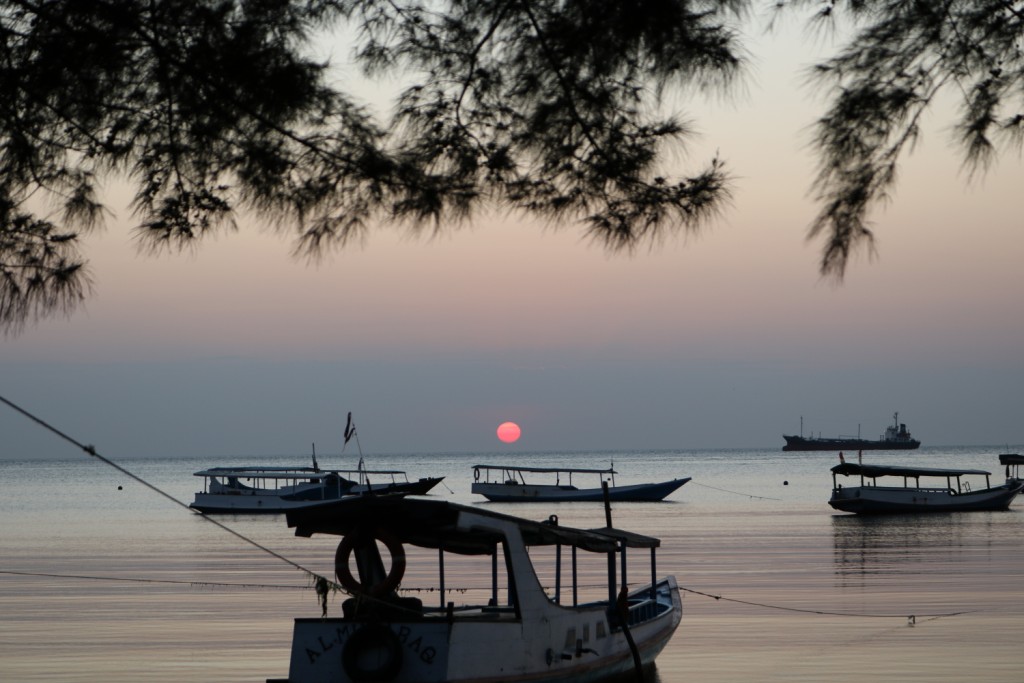Indonesia was named as a Maritime State in UNCLOS (United Nations Convention on the Law of the Sea) in 1982. This is acceptable because Indonesia has a wider sea area than the land. Even Adrian Bernard Lapian, an Indonesian maritime historian has issued a statement, that “Indonesia is not an island surrounded by sea but Indonesia is a sea ‘sprinkled’ by islands. “
At that time, the consideration for determining Indonesia as a Maritime country was not only assessed from the vast seas it possesses, but also its maritime history. Since the age of archipelagic kingdoms, which was controlled by Kingdom of Sriwijaya and Majapahit, both kingdoms with archipelagic potent powers became great because they were able to master the ocean. With military force, they were able to control all commerce in Southeast Asia.
Despite the great history of Indonesia in trading, how are Indonesian developments of marine natural resource condition or commodities? Regarding marine natural resources, it is related closely to fishermen, as the main party that utilizes the resources.
Based on Law No. 31 of 1999 concerning fisheries, fishermen are human resources that play a very important role in fishing operations. Not only fish, but all types of aquatic biota can also be utilized.
Data from the Ministry of Marine Affairs and Fisheries shows that the number of Indonesian fishermen reached 1.6 million in 2003, but in 2016 it decreased to 2,265,859. What could be the cause of this decline? It’s nothing but overfishing.
Overfishing is the process of excessive fishing practice to an extent that most of the potential for food and resources taken are not fully utilized (Hillborn, 2011). Overfishing causes an imbalance between the number of fishermen and the catch. The fish decreasing every year brings a fierce competition among fishermen.
Some of the causes of overfishing are the rapid technological development, from sonar technology to GPS use to locate the fish, from the latest innovations in fishing gear to the fish processing machines. However, the use of such technology can still be controlled so overfishing will not happen if human resources are aware of the environment and the impacts caused by excessive use of these technologies.
The cause of the declining number of fishermen and their catch is the fishermen themselves as Indonesian fishermen are still not aware of the concept of sustainable ecosystems. There is also weak law enforcement in Indonesia, which let Indonesian fishermen free to do anything to gain maximum result.
Why are our fishermen still unaware of it? It happens because most Indonesian fishermen are from the lower to middle class, even the data from the Central Bureau of Statistics states that at least 48% of Indonesian fishermen come from poor community with lack of education. Therefore, the concept of maintaining a sustainable ecosystem is still unthinkable to them, because they only think of how to get maximum catch and family needs are fulfilled.
Although Indonesian fishermen can be divided into two classes, modern and traditional classes, most of them are traditional fishermen. Rokhmin Dahuri, Professor of FPIK Bogor Agricultural Institute (IPB) gave an example, from 625,633 fishing vessel units, at least only 3,811 are classified as modern units. Modern units are indicated by their capacity which is above 30 gross tons (GT). “The amount is only about 0.6 percent, very small,” he said (quoted from Republika.co.id).
With the low level of education, lack of awareness and knowledge of Indonesian fishermen can cause a deterioration of marine condition. So, is it necessary for graduates of fisheries from Middle School and Higher Education to accompany and even become fishermen?
Since the leadership of President KH. Abdurrahman Wahid, Indonesian maritime sector opened up more and supported by the government as a new Ministry was established by appointing Sarwono Kusumaatmadja as Minister of Marine Exploration. Until now, the Indonesian maritime sector has been pushed more by the government. Under the management of Work Cabinet, with Susi Pudjiastuti as Minister of Marine Affairs and Fisheries, various work programs are potential and bring exciting prospects for fisheries graduates in Indonesia.
There are two solutions that can be used to overcome these marine problems in Indonesia, the need for fisheries graduates to accompany or even become fishermen, and improve the production of marine aquaculture further.
Most graduates currently work for the government or commonly called civil servants, and the rest choose to work abroad. As quoted from beritasatu.com, that 32% of Indonesian fisheries college graduates are absorbed by the international market.
They seemed to forget their oath as they were still students to always defend the people. If fisheries graduates are willing to become fishermen or even replace the fishermen, they will be the solutions because they are more knowledgeable, they know which commodities are endangered and which can be explored, and they are certainly more aware of sustainable marine ecosystems, so the problem of overfishing can be overcome.
Moreover, fisheries graduates can also help the government in terms of fisheries supervision, by enforcing fair and strict laws. It can even be done when they are still students, by providing dissemination and education to the fishermen.
The second solution is to improve the marine aquaculture sector. The government through KKP has now carried out an offshore KJA work program that aims to make a breakthrough and achieve Indonesia’s marine aquaculture production targets, as well as open new employment opportunities for small fishermen. Small fishermen are better off switching to the marine aquaculture sector, so capture fisheries are dominated by modern fishermen who are easier to monitor and control.
So, as people who work in the world of fisheries, it is only appropriate to improve the world of fisheries and marine life after completing the studies in order to strengthen Indonesia’s role as the world’s maritime axis. Happy World Ocean Day!





